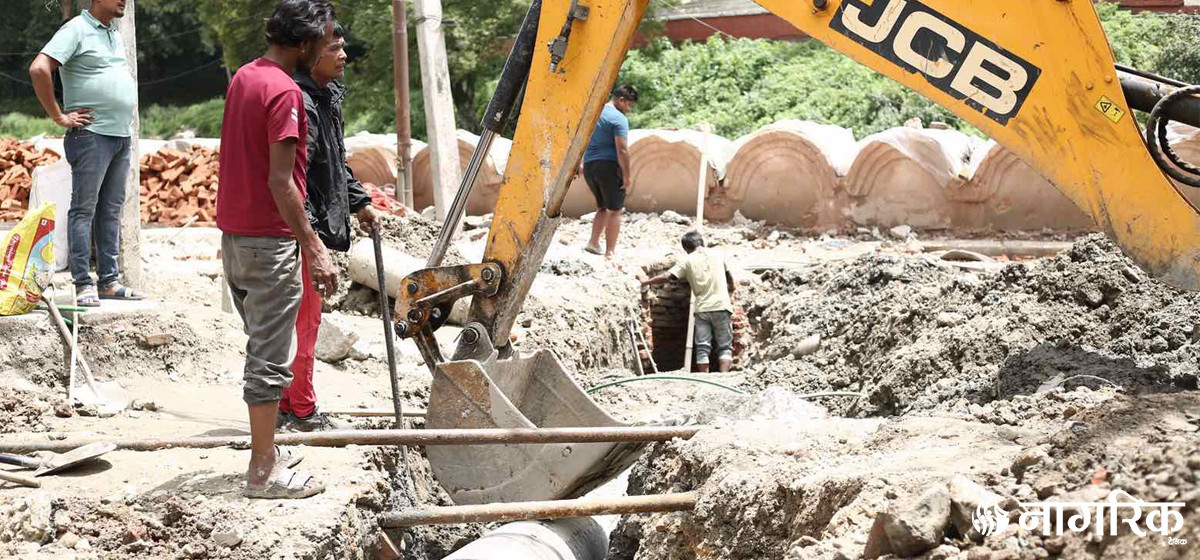Now all of us in Kathmandu can add one more item to the list of things that could potentially kill us. If the air quality or the killer roads don’t get you, the fruits and vegetables surely will! But we already knew that.
Unless you were living under a rock all this while or were naïve enough to believe that organic farming methods alone were enough to sustain the current population and the accompanying levels of food consumption! Which is what makes the entire uproar over this “slow poisoning epidemic” – as one very enraged commentator on TV put it – all the more baffling.
Before the poorly researched and hastily implemented cabinet decision came into effect, the same fruits and vegetables were coming in, uninterrupted after passing the sort of cursory lab test which wouldn’t be enough to impress an eighth grade science student. It’s the equivalent of your local “pani-puri” seller serving you with surgical gloves on – just a useless spectacle designed to reassure consumers. Everything was certainly going well before this surprise decision – many of us apparently were not only oblivious to the poison in our food but were actually quite content overpaying for them.
VAR is a 'big mess', says Guardiola after more controversies

The status quo only changed because the government and administration decided to implement a decision without taking into account testing, quarantine capabilities, and required human resources. As for the pressure mounted by India, they have on numerous occasions been guilty of flouting World Trade Organization (WTO) norms themselves through the imposition of arbitrary decisions on the export of many Nepali agricultural products – including ginger and tea to name a few. And on all of these occasions, these actions were taken in the name of sanitary and phyto-sanitary measures, so there was some basis to resisting pressure from India.
But why lay the blame for this on Indian “pressure”? Our bureaucracy doesn’t really cover itself in glory anyway, but that it took all of six or seven public officials – including a minister, various secretaries, a director general and an unnamed official from the PMO – to come to this stupid decision is a new low.
The BBC reports that it takes as little as fifteen hundred thousand to set up a laboratory to test for various kinds to residue in agricultural products. Why wasn’t an issue as crucial to public health as this seen as a necessity until now? Even now after all this has died down, you can be sure that nothing will be done about it. What will happen (and usually does after a decision backfires) now is the officials in question will feign ignorance and play their favorite game of passing the buck.
As long as our officials are this inept the public will have to make do with these so called poisonous produce, as it always has. There is no shortage of alarming videos on social media of people injecting fruits with chemicals and vegetables being washed in synthetic dyes and chemicals to make them more appealing. While these practices may not be as widespread as the mass hysteria seems to suggest, our food whether imported or otherwise contains huge amount of pesticides in them.
Unless you happen to grow them yourself in your garden, chances are that your food has come into contact with pesticides no matter how much you pick and choose the most shapely veggies and fruit. In Nepal, the definition of organic food is limited to any food without pesticides. This conveniently ignores the whole plethora of agricultural practices like use of cover crops, crop rotation systems, soil tilling and health management practices among others that make up organic farming. Farmers markets have blossomed all over the capital catering to the well-heeled and over the weekend you can find most of them doing brisk business helping to lighten people’s wallets with the Nepali version of organic produce. Not all of them are shams but our understanding of organic farming makes it particularly easy to pass off the same old as organic.
All said and done, the status quo has not changed and is unlikely to in the short to medium term. Even if the government gets their act together, it will be a while before they are ready to begin any sort of enforcement. In the meantime, and despite the government well meaning initiative, we will still be overpaying for the same kind of fruit and veggies that we do now. Well, at least some good seems to have come out of it – it has raised awareness among the general populace. But even with our collective sense of newfound enlightenment, what can we really do?
The writer loves traveling, writing, and good food when he is afforded an escape from the rat race. He can be contacted at gunjan.u@gmail.com







































